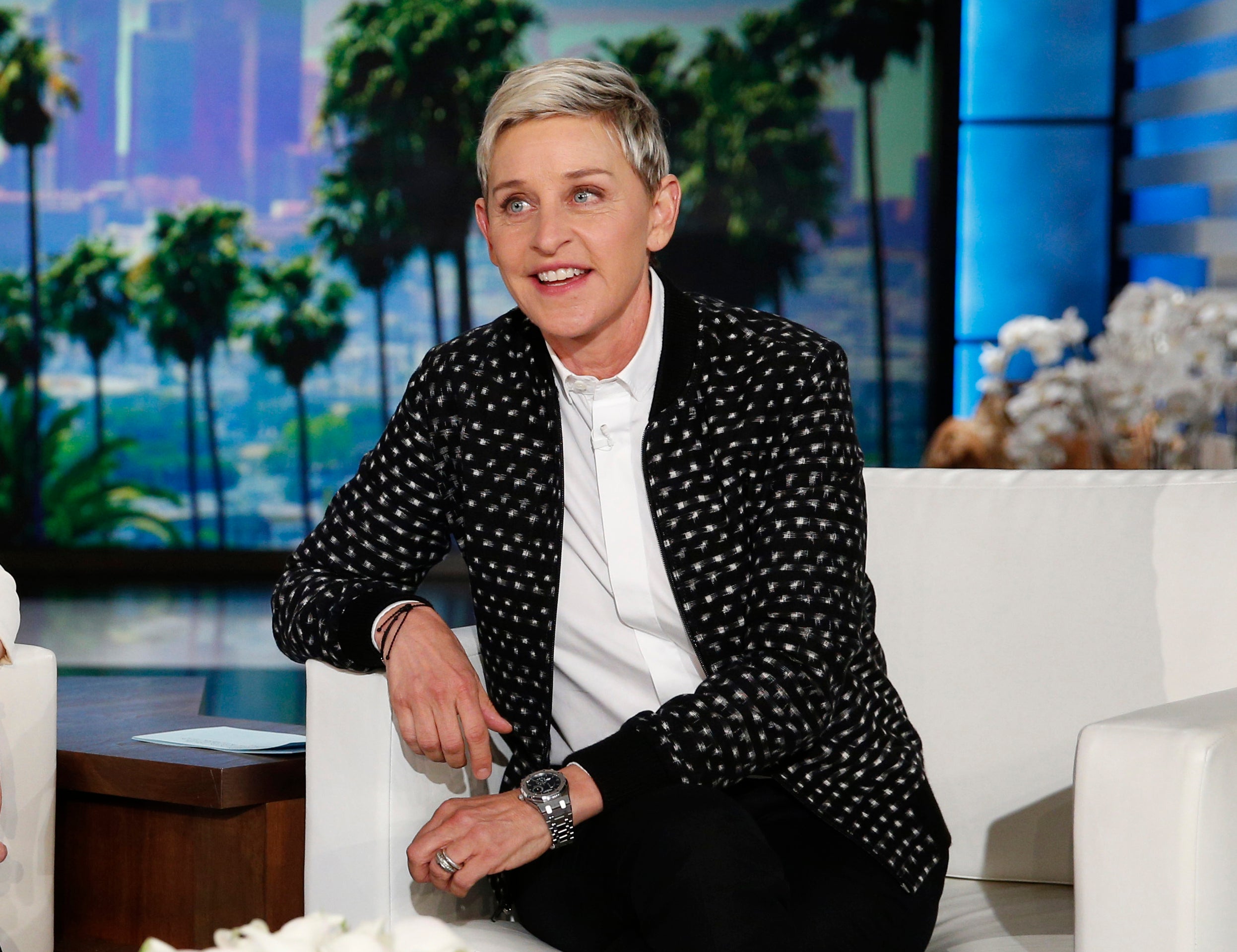Like it or not, Ellen DeGeneres’ show made the world a better place
Those celebrating the end of The Ellen Show should remember what the world was really like when DeGeneres first came on the scene. I know I do


Your support helps us to tell the story
From reproductive rights to climate change to Big Tech, The Independent is on the ground when the story is developing. Whether it's investigating the financials of Elon Musk's pro-Trump PAC or producing our latest documentary, 'The A Word', which shines a light on the American women fighting for reproductive rights, we know how important it is to parse out the facts from the messaging.
At such a critical moment in US history, we need reporters on the ground. Your donation allows us to keep sending journalists to speak to both sides of the story.
The Independent is trusted by Americans across the entire political spectrum. And unlike many other quality news outlets, we choose not to lock Americans out of our reporting and analysis with paywalls. We believe quality journalism should be available to everyone, paid for by those who can afford it.
Your support makes all the difference.“Yep, I’m gay.” With those three words, Ellen DeGeneres changed history. The trailblazing comic, who famously came out on the cover ofTime, today announced the end of her long-running talk show. While recent accusations of bullying and mistreatment on the set of her eponymous show have cast a pall over her mild-mannered public image, her legacy is indisputable. Simply put, Ellen DeGeneres is a trailblazer who broke through barriers, opened doors for LGBT talent, and made the world better for gay folks like me.
From the vantage of 2021 — with gay marriage legalized throughout the country, teen idols openly discussing their same-sex attraction, and an openly gay cabinet secretary who publicly kisses his husband — it can be hard to recall just how momentous and controversial Ellen’s coming out was. But 1997 was a different time. Just three years earlier, the show Roseanne caused a “firestorm of controversy” when it aired the first same-sex kiss on primetime television. In November 1996, five months before Ellen’s Time cover was released, only 44 percent of Americans thought same-sex relations between consenting adults should be legal. Gay marriage was not only illegal in all 50 states, but even gay rights activists viewed it as an impossible dream.
Widely viewed as the girl-next-door, Ellen was America’s favorite neighbor. She found her way into the nation’s hearts first as a sarcastic comic and then as the star of her eponymous sitcom. Her decision to not only come out, but to have her character come out, was as groundbreaking as it was controversial. Advertisers boycotted, the religious right went berserk, and there were even bomb threats against the studio during filming.
Yet Ellen persisted, and thank God she did. I remember watching the famous “Puppy Episode” with my mother. It was the first time I remember seeing a coming out depicted, and I was confused. We didn’t talk about gay people in my house, but I must have known they existed because I joked that she was “Ellen Degenerate” — an offensive nickname given to her by rightwing televangelist Jerry Falwell — and complained about her character coming out at the same time.
To her credit, my mom asked why this was a big deal to me. “Gay people are just as good as we are,” she told me. Unbeknownst to her — and, frankly, to me at the time — she was telling me that it was okay to be gay. When I came out just a few short years later, I remembered Ellen’s courage and that conversation she opened between me and my mother. I credit Ellen DeGeneres for normalizing homosexuality enough that when I did tell my parents I am gay, they both reacted with love and support. They might not have understood what I was going through, but at least they understood what it meant.
That was 2001. As fate would have it, I came out to my parents the day before 9/11. It was a frightening time for me personally and for our nation. Once again, I turned to Ellen for comfort and light.
Mere weeks later, DeGeneres hosted the Emmys. They had been postponed several times — one of the many events delayed due to “security concerns” during those strange days following the World Trade Center attacks — but Ellen deftly calmed the nerves of a jittery nation with gentle humor. “What would bug the Taliban more than seeing a gay woman in a suit surrounded by Jews?” she quipped during her opening monologue. It was a hopeful joke about America’s wondrous diversity and opportunity made by a woman who had been treated horribly just a few years earlier. Coming out damaged her career, resulting in ABC cancelling her sitcom and her inability to find work for several years. Her next show, for CBS, tanked. It looked like she was through.
Against the odds, DeGeneres found a second act as a talk show host. Over the course of nearly two decades, she helped mainstream gay people in ways no one else could. Whether having a frank conversation with presidential nominee John McCain about his opposition to gay marriage in 2008, spotlighting gay young people making a difference, or just talking about her life with wife Portia as though it were perfectly normal (which it is), she helped the country see that we are just like her.
Accusations of bullying and a toxic work environment have certainly altered the nation’s perception of Ellen as the reigning Queen of Nice. And of course, these accusations should not be dismissed or ignored. It is an unfortunate way to end her talk show and a blemish on her reputation.
Equally, none of the controversy of the past 18 months should mar DeGeneres’ legacy. Because while she may be far from perfect, she is a trailblazer and a groundbreaker, and the reason why many gay people in America grew up in happier homes than they ever could have hoped to previously. Like it or not, Ellen DeGeneres made the world a better place.
Join our commenting forum
Join thought-provoking conversations, follow other Independent readers and see their replies
Comments